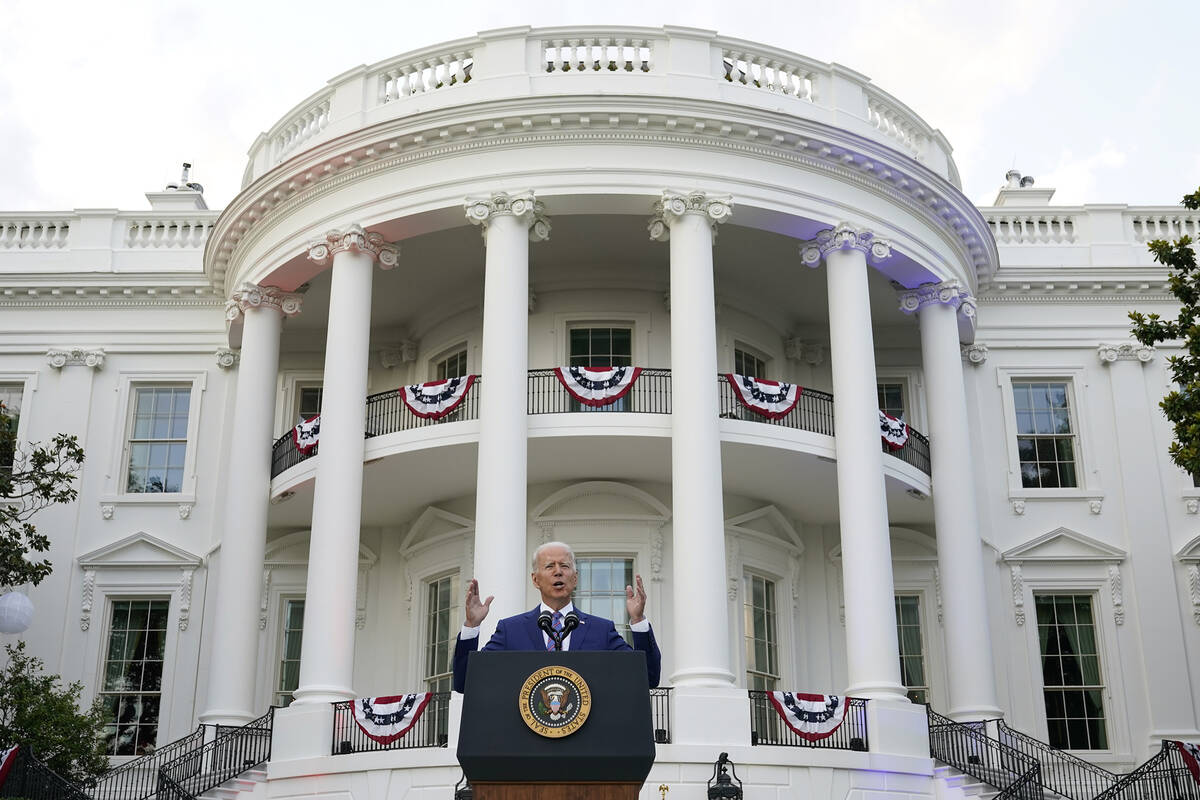EDITORIAL: Biden rushes to regulate, spend as he nears the exit
As Joe Biden’s presidency enters its last weeks, officials are rushing “to preserve at least some of the outgoing president’s legacy,” The Associated Press reports, before Donald Trump takes over in January.
“Let’s make every day count,” President Joe Biden said last week after the election.
That means spend, spend and spend some more, while rushing judicial confirmations, doling out grants and other taxpayer handouts and issuing last-minute regulations, among other things.
This is business as usual for most Democratic presidents, of course. During his four years, Mr. Biden’s federal agencies imposed “a lifetime per family burden of $47,000,” according to calculations by Casey B. Mulligan, a University of Chicago economics professor. Compare that with a lifetime savings of $11,000 per family under Mr. Trump.
So it’s no surprise that the Biden team now frantically piles on. The AP notes that “announcements of major environmental grants and project approvals have sped up in recent months in what White House officials describe as ‘sprinting to the finish’ of Biden’s four-year term.” As part of that process, the president imposed a new tax on oil and gas companies for methane releases.
The White House is also “hurrying to finalize” another proposal for putting the American taxpayer on the hook for the student loans held by millions of college attendees, according to the wire service.
Mr. Trump has promised to claw back unspent money from Mr. Biden’s massive spending bills, including cash that was directed to various green energy interests. He should follow through on that plan. Mr. Trump would also be wise to use executive orders as a way of implementing a more fiscally prudent approach to infrastructure “investment.” In the meantime, the Republican Congress should prepare to make liberal use of the Congressional Review Act.
The law dates to the Clinton administration and gives Congress the power, through an expedited process, to rescind regulations imposed by federal agencies. It has been most commonly used during presidential transition periods when one party is removed from the Oval Office and the other takes over, or when Congress changes hands.
After the election of Mr. Trump in 2016, for instance, the GOP Congress used the act to overturn 16 rules propagated by the Obama administration. Democrats returned the favor in 2020, repealing three rules imposed in the waning days of Mr. Trump’s first term.
The Congressional Review Act is a vital check on the executive branch’s enthusiasm for growing the administrative state. Republicans shouldn’t be shy about exercising it.






















